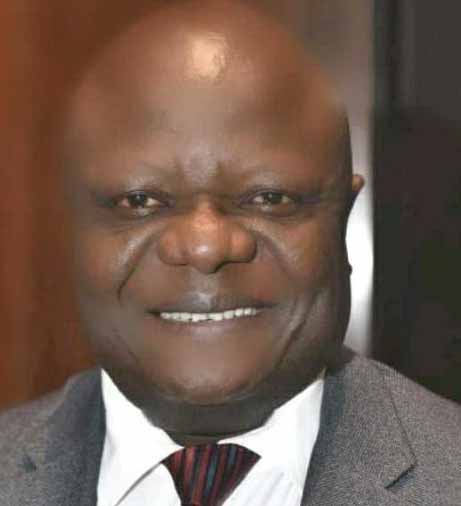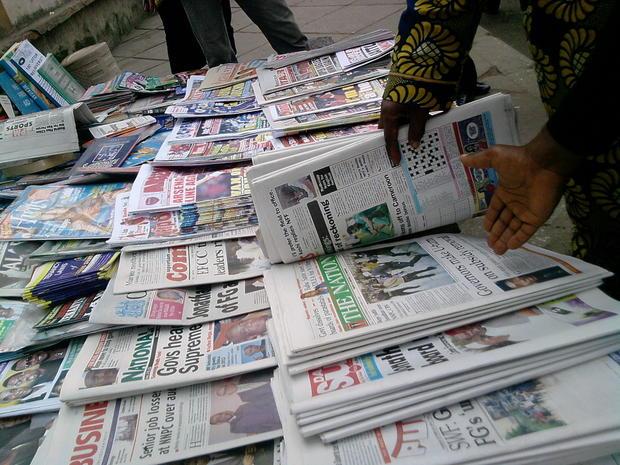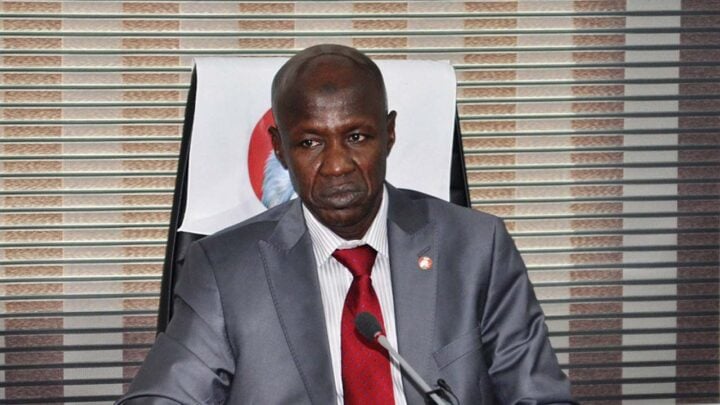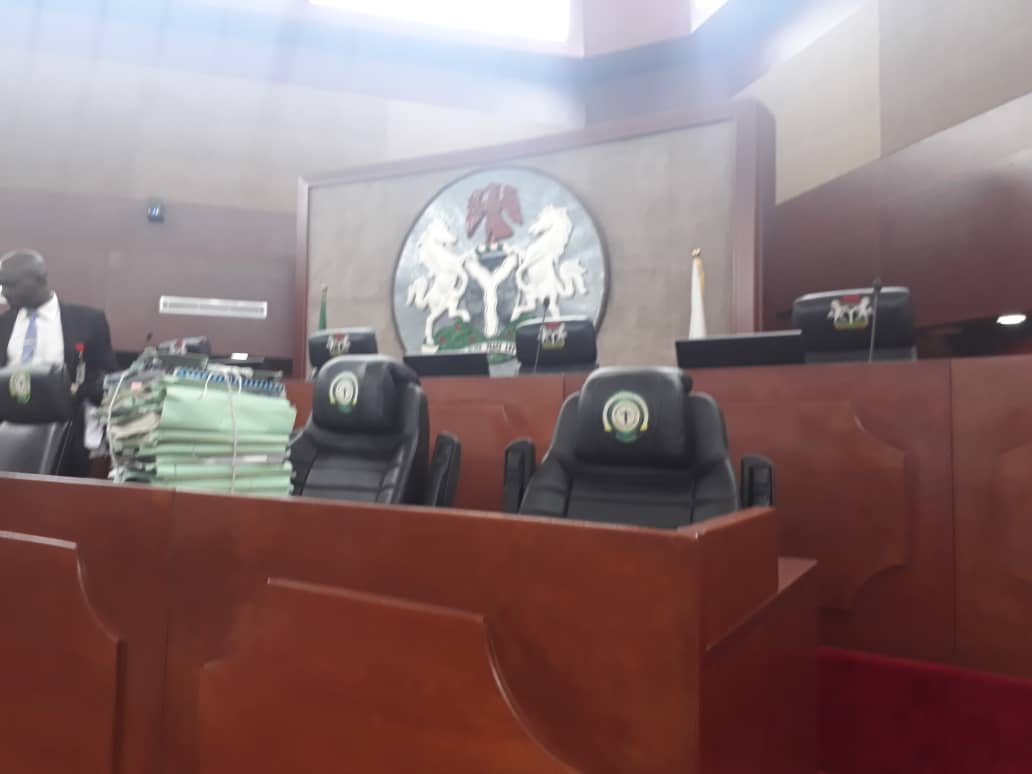The media has increasingly been in the limelight. We do not expect anything less because of the growing gains in technologies of communication. We do not also expect this limelight to diminish anytime soon, because of the rising sophistication of the technologies. Coming with the limelight however is the increasing scrutiny on the role of the media in shaping, reshaping social life, and in the determination of how we relate as humans.
There have been so many alterations, so much redefinitions and a lot more reshuffling of the scales, spaces and places of existence. These new shifting of shapes are a challenge to us on how we adapt, to cope with our new realities and experiences, consistent with man’s ability to rethink processes and procedures for his own convenience, and more importantly for social harmony.
Thomas Hobbes told us ages ago about the social system being short, brutish and nasty, if there was no law. The social system he envisaged was of course life offline. And there are motley of rules, regulations, ethics and laws to guide us offline. Let us fast forward to the 21st century, where we share our time between life offline and life online. While we are used to living life offline, we are still grabbling with patterns and particularities of life online. And life online, sometimes seems like the life envisaged by Hobbes, as it is occasionally brutish, short and nasty.
This is so because control is tougher, owing to its permissible dimensions. It offers an escape for the man, who feels a new sense of freedom, and a new place of expression. It additionally provides the space for those Wole Soyinka called “Closet Psychopaths” or “Closet nymphomaniacs” according to Reuben Abati. But to what extent should we break bones about these developments? To what extent should we regulate, or fail to regulate?
Advertisement
First, we need to understand that questions around misinformation, malformation, disinformation, fake news and hate speech are not new to man. Many forerunners of knowledge, including Aristotle, Socrates, Plato, St. Augustines of Hippo, Al-Farabi, Ibn Khaldum, St. Monica, amongst others had reasoned around the search for truth. They were differently concerned about what truth actually should be.
In the fruitless search for the truth, they expanded the frontiers of knowledge, of ideation and intellection, leaving the space for others to continue. In searching for the truth, there was the subtext of falsehood, which needed correction. Could they completely correct things? They arguably did not, but their efforts yielded results, through the population of knowledge spaces, from the prism of their logic.
Again, fast forward to the 17th century and remember the King of Prussia, who according to records used misinformation to further his imperial tendencies. How about the thick of the ideological war between the old Union of Soviet Socialist Republic (USSR) and the United States of America (USA), or the West in general? It was an era characterized by deep-seated political and economic divide, where propaganda reigned supreme.
Advertisement
And from our basic understanding of propaganda, truth is always a casualty. Adolf Hitler was famous for his demagoguery, his misrepresentation of facts, in manners that suited his purpose. Truth died in his lips. Look at Philip Taylor’s definition of propaganda as the systematic dissemination of information from a sender(s) to (a) receiver(s), for benefiting the source, and you will see how self-serving information dissemination can sometimes be. Then check the seminal work of Edward Herman and Noam Chomsky on the “Manufacturing of Consent” and you will again see how information dissemination can be selfish.
One of the greatest writers of all time, William Shakespeare lived in the 15th Century or thereabouts. He wrote many books, plays and play lets. He gave us many English language lexicons. The sense and wisdom from his works are still reference points over 500 years after his death. Only in the 19th Century however, questions began to emerge if he was actually the author of those works.
A fan of Shakespeare will surely have none of that. But the questions are still raging and new researches are emerging around the challenge on his productions and productivity. Was Shakespeare lying? Was the identity of Shakespeare a fake one? Are the news around him fake news? We can continue to ask related questions as much as we want.
There is something we call the gospel truth. This truth is adjudged as absolute, eternal and eschatological. The coming of the gospel was supposed to clear some air, and provide a pattern for the understanding of being and becoming, for the smooth navigation of life, to the one after. The supposition hitherto was an absence of truth, or an inadequate understanding of existence.
Advertisement
What all these point to is that we are in a world of difference, a variegated world where sameness is hardly possible, but when man partly relies on information to predominate. What however matter, therefore, is not just the management of the difference or differentiations, but also mode of assimilation.
Things and societies are promoted as good or civilized, depending on how differences are managed. Take the human biology as an instance. The head, the hand, the legs, the belly are in coordination with the spine, the heart, the kidney, and the liver and other organs. They are separate but interdependent.
Transport this analogy to the society. The society is replete with dividers, classifiers, weaved around ethnicity, religion, cultures, class, income groups, circumstances of birth, and more. Manage this diversity well and you will have a harmonious and prosperous people. But manage this poorly and the reverse will be the case.
One instrument or item, central to management of systems and societies, as I have hinted, is the media. The media mediates, connects, brings about communion, understanding, and provides grounds for direction, for policy framework, for mobilization and for galvanization. The media is the oxygen for social survival. It is a blood, which a system needs for survival. But if contents, messaging and materials are cancerous, toxic and contaminated, you can then imagine how this will rub off on the system. A healthy blood is more likely to generate a healthy system, conversely.
Advertisement
The revolution in communication, culminating in the social media has introduced a new phase for us, more importantly. This phase is where every man or woman is literally empowered to generate, send or share information, without let or hindrance, irrespective of quality or the danger it could pose to individuals or groups.
The new technology somewhat permits the furtherance of a character of a man, described by a holy book as being infinitely wicked. It was this wickedness that Hobbes probably also echoed when he said life will be brutish, nasty and short, if there was no law. The new media is extensively permissive, and grants independence to the mischief-maker, who is now with limited control.
Advertisement
While it is not an essentially new tendency, as I have tried to establish, our new worry however should be how to be adaptive, through measures to guarantee the smooth functioning of the system, such that a dysfunction can be avoided for the good of all. In doing that nevertheless, shall we be affecting the inalienable right to be happy? Can there also be absolute freedom? What can be done? I shall turn to this next.
First, the media has been established as lifeblood. But this lifeblood needs some tonic, or supplements to ensure it functions well. One of this is the provision of understanding. I am shying away from calling it education, because that might appear too serious, or too structural. Understanding is multileveled. It can come not just through education, but also through deliberate or strategic sensitization, the creation of awareness, through mobilization and through re-conscientization.
Advertisement
Understanding is a deliberate move to retune the populace to the realities of the time, the new experiences, and the new facts of technologies of communication. Understanding is about re-shaping notions, also about cherishing otherness, about appreciating that as an individual, you cannot live alone, having been created as a social being. As humans, co-existence is primary, innate and unavoidable.
You have to live with people, be tolerant and accept difference as a feature you need for support, just as the human anatomy. Bringing about understanding, which a lot have called media literacy, is growing the mind to appreciate new technologies of communication, of socialization, but appreciating that as much as technologies of communication are not ordinarily harmful, the manner of use can be.
Advertisement
Societies bring about understanding in different ways. We have also made moves in our own way. The problem has been how we can walk the tight robe between the provision of understanding and the need not to scare citizens off their freedom. How do we ensure that enlightenment is not intimidation, or the reduction of the ideation and intellection potentials of the citizen? I reckon that this can be challenging for the authorities. It is however a tight robe we can surely thread, if we have class free contemplation. A class-free contemplation is one that is altruistic and hardly supportive of any one class in the social system.
I also need to say that while the provision of understanding remains a soft approach, the hard approach should as well be in the wings. Like in real life matters, there is no kind of exposure, or attempt at improving understanding that can change some characters. Despite strict social regulations, the constitution and the law, societies will still breed perverts, deviants, and people with deep-seated knack for circumventing processes and procedures.
In cases of such deviations, the law would have to take its proverbial course. That way, a system would be satisfied that an extreme, a nymphomaniac or psychopathic person would have to be dealt with, through sanctions, in accordance with laid down laws.
Problem again lies in the misapplication or non-application of the law. The challenge is additionally in the inappropriate communication of the infraction. Authorities may have to scare less, resort more to the laws, while agencies will have to be more courageous in apprehending culprits. There is a way an offender will be apprehended and the system will feel a sense of relieve, even if social justice is different from legal justice.
There is also a way you can apprehend an offender, and the society will rather feel offended that some rights are being trampled. Resting somewhere is the problematic discernment of method, a tricky modus operandi, which needs resolution. The solution is therefore to think more, be firmer in taking actions, and be dispassionate to avoid charges of favoritism.
While an information literate citizen is desirable, we have to understand that it does not come on a platter of Gold. It has to be deliberate, systematic and strategic. Literacy is, of course empowering, but the powers therefrom should be a positive one. The definition of the negative variant is largely for the authorities, but the guidelines should be nearly mathematical, not just for the proper use of the new technology, but also for the overall good of the system.
Citizen engagement is partly a function of information sharing, a by-product of understanding and the willingness of the leaders to be conscientious, just as the led are also expected to be dutiful. It is a two-way traffic, an interacting binary and the dialectics of growth. We cannot afford to shirk our obligations and responsibilities on all sides. I so submit. “As was, is now, as ever shall not” Very many thanks for listening to me.
Adeniyi, head, mass communication, is an associate professor of diasporic and strategic communication at Baze University, Abuja. He made this lead remarks at a symposium organised by the federal ministry of information and culture, National Press Centre, Radio House, Abuja, 18 February 2020.
Views expressed by contributors are strictly personal and not of TheCable.







